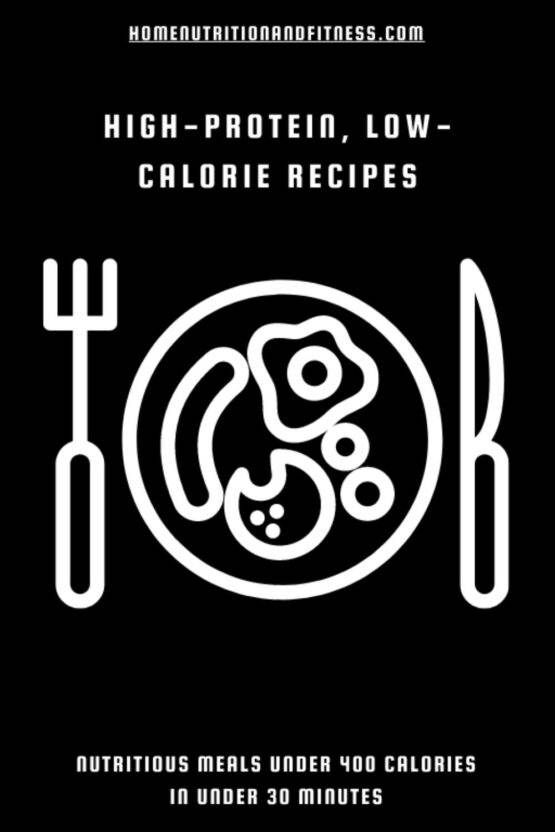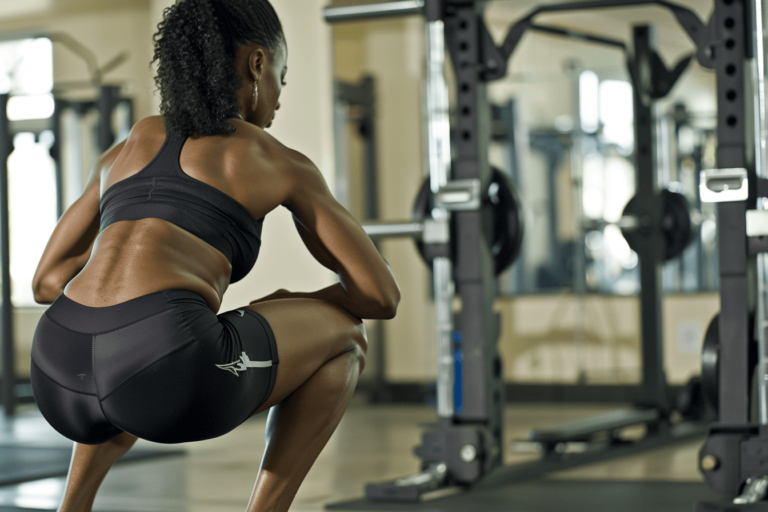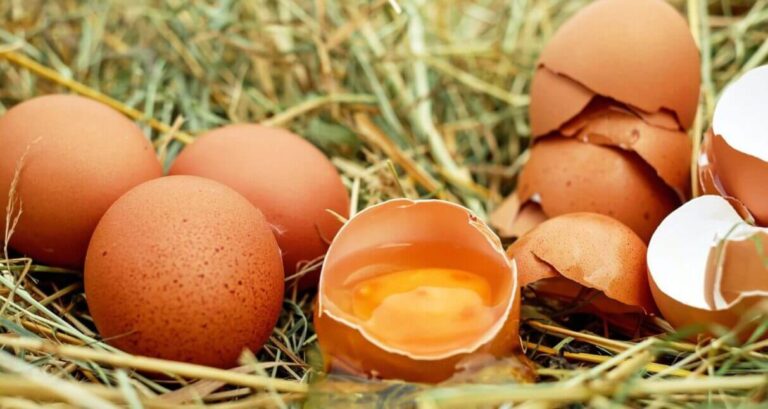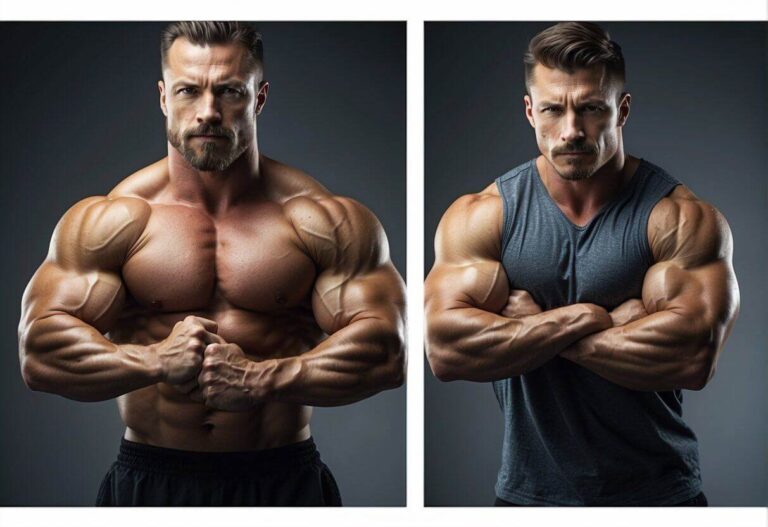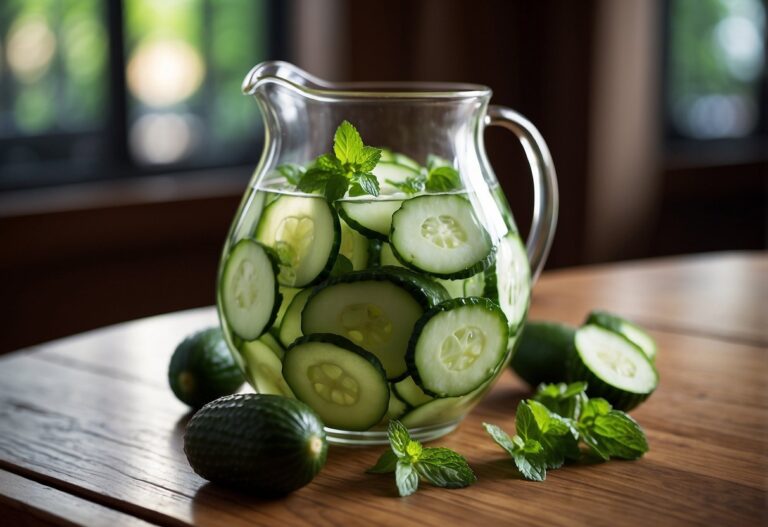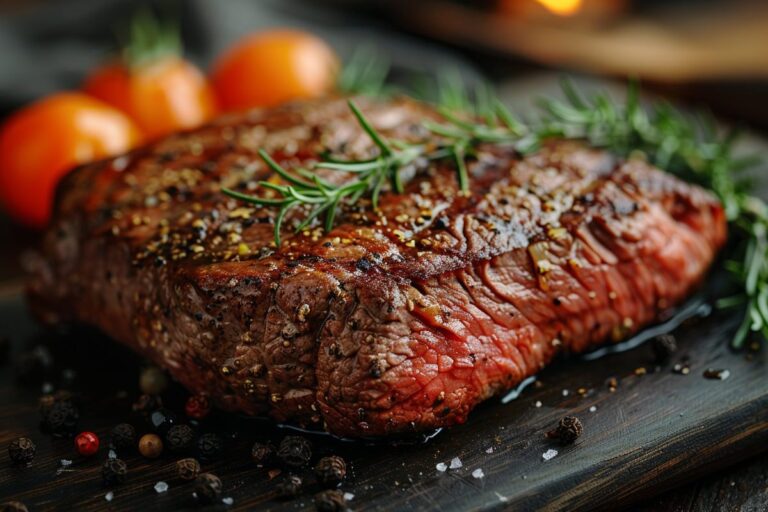Protein is an essential nutrient that is needed for muscle growth and repair, but is it enough to simply eat more protein to gain muscle?
You’ve probably heard it hundreds of times – ‘Eat more protein if you want to build muscle’.
Is there anything wrong with that statement? Of course not! Although to some it might suggest that if you start stuffing your face with chicken, you’ll eventually start looking like The Rock.
Let’s look at why these people are wrong and what you need to be doing to build muscle.
Muscle gains require more than just eating protein. While protein is crucial for muscle growth and repair, it is not the sole factor. Regular resistance training and a balanced diet, including carbohydrates and fats, are also essential for muscle development. Consuming only protein can lead to constipation, bad breath and headaches. Eating more protein than needed won’t necessarily lead to more muscle gain either. Additionally, gaining muscle involves being in a caloric surplus, engaging in resistance training, and being patient and consistent with diet and exercise routines.
The Role of Protein in Muscle Building
If you’re looking to build muscle, you’ve probably heard that protein is essential. But what exactly is the role of protein in muscle building?
Protein is made up of amino acids, which are the building blocks of muscle tissue. When you lift weights or do other resistance exercises, you create small tears in your muscle fibres. Your body then uses amino acids from protein to repair and rebuild those muscle fibres, making them stronger and bigger.
For muscle growth to occur, you need to have a positive balance of muscle protein synthesis (MPS) – the process by which your body builds new muscle tissue. This means that you need to be consuming enough dietary protein to support MPS. According to a study conducted on the timing of protein intake on muscle protein synthesis, consuming protein immediately post-exercise stimulates protein synthesis while waiting even just 2 hours after the exercise reduces the response.
There is some debate about exactly how much protein you need to build muscle, but most experts agree that consuming around 1.2-2.2 grams of protein per kilogram of body weight per day is sufficient for most people looking to build muscle. However, it’s important to note that this is just a guideline and individual protein needs can vary based on factors like age, sex, and activity level.
It’s also worth noting that simply eating more protein won’t necessarily lead to more muscle growth. There is a common belief that the body can only digest 30 grams of protein at once. However, this is not entirely accurate. Studies have shown that the body can digest a larger amount of protein, but it may take longer to do so.
To maximise muscle growth, you need to combine a protein-rich diet with regular resistance training.
Protein Sources for Muscle Gain
If you’re looking to gain muscle, you need to make sure you’re getting enough protein in your diet. Protein is essential for building and repairing muscles, and it’s important to consume enough of it to support muscle growth. Here are some protein sources that can help you gain muscle:
- Meat: Animal-based protein sources like beef, chicken, and pork are great sources of protein. They’re also rich in other nutrients like iron and zinc that are important for muscle growth.
- Fish: Fish is another great source of protein, and it’s also rich in omega-3 fatty acids that can help reduce inflammation and support muscle recovery.
- Eggs: Eggs are a complete protein source, which means they contain all of the essential amino acids your body needs to build muscle. They’re also a good source of healthy fats and other nutrients like vitamin D.
- Beans: Beans are a great plant-based protein source that can help you gain muscle. They’re also rich in fibre and other nutrients that can support overall health.
- Protein Powder: Protein powder supplements can be a convenient way to increase your protein intake. Whey protein is a popular choice for muscle gain, but there are also plant-based protein powders available like pea protein and soy protein.
- Nuts: Nuts like almonds, cashews, and peanuts are a good source of protein and healthy fats. They’re also rich in other nutrients like vitamin E and magnesium that can support muscle growth.
- Rice: Rice is a good source of carbohydrates that can provide energy for workouts. It’s also a source of protein, particularly when combined with beans or other protein sources.
- Greek Yoghurt: Greek yoghurt is a good source of protein and probiotics that can support digestive health. It’s also a versatile ingredient that can be used in a variety of recipes.
- Quinoa: Quinoa is a complete protein source that’s also rich in other nutrients like fibre and magnesium. It’s a great alternative to rice or other grains and can be used in a variety of recipes.
When it comes to gaining muscle, it’s important to consume enough protein to support muscle growth. Animal-based protein sources like meat and fish are great options, but there are also plenty of plant-based protein sources available like beans and quinoa. Protein powder supplements can also be a convenient way to increase your protein intake. Whatever protein sources you choose, make sure you’re consuming enough to support your muscle growth.
Related Posts:
Exercise and Protein Intake
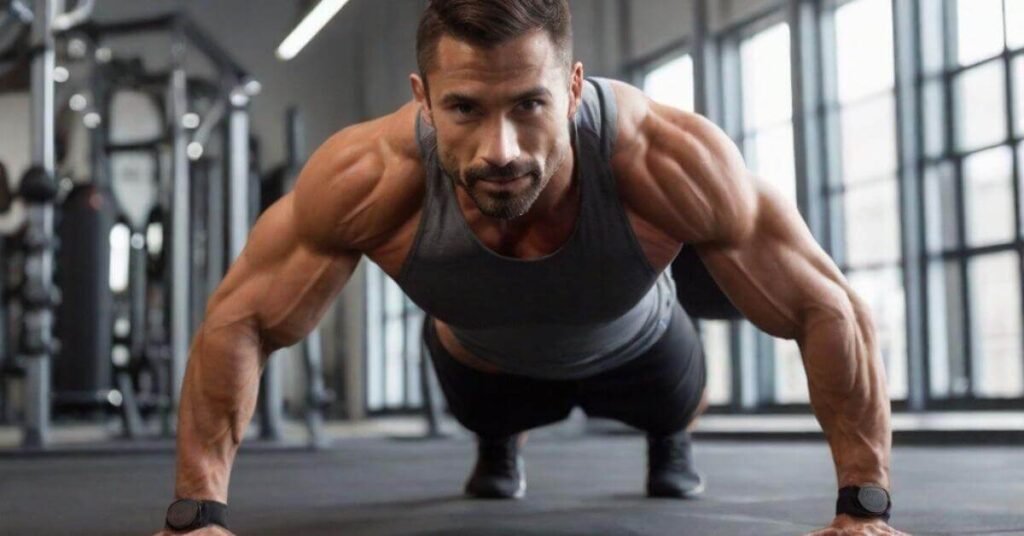
If you want to gain muscle, both exercise and protein intake are important. Exercise, especially resistance training, helps to build muscle, while protein provides the building blocks necessary for muscle growth and repair.
Resistance training, such as weight training or bodyweight exercises, is particularly effective for building muscle. This type of exercise involves using external resistance, such as weights or resistance bands, to challenge your muscles and promote muscle growth. Strength training, which involves lifting heavy weights for a small number of repetitions, is also effective for building muscle.
When you lift weights, you create microscopic damage to your muscle fibres. In response to the damage, your body begins to repair the fibres, whilst at the same time making them thicker and more robust. This leads to an increase in size known as hypertrophy. Over time, consistent weight training, along with proper nutrition and recovery, contributes to noticeable muscle growth and improved muscular strength.
Related Posts:
Nutrition and Caloric Surplus For Muscle Building
To gain muscle, you need to eat more calories than you burn. This is known as a caloric surplus. However, it’s important to ensure you’re consuming a balanced diet that includes all the necessary macronutrients, such as carbohydrates, proteins, and fats.
Protein is essential for building and repairing muscle tissue, so it’s important to ensure that you’re consuming enough protein in your diet. Good sources of protein include meat, fish, eggs, and dairy products. If you’re following a plant-based diet, you can get protein from sources such as tofu, lentils, and beans.
Carbohydrates are also important for providing energy during workouts. Good sources of carbohydrates include whole grains, fruits, and vegetables. It’s important to choose complex carbohydrates, which are digested more slowly and provide a sustained energy source.
Fats are also important for providing energy and helping your body absorb vitamins and minerals. Good sources of healthy fats include nuts, seeds, and oily fish.
To ensure that you’re consuming enough calories to support muscle growth, it’s important to eat regular meals and snacks throughout the day. Aim to eat every 3-4 hours to keep your energy levels up and to prevent hunger.
When it comes to macronutrient ratios, there is no one-size-fits-all approach. It’s important to experiment with different ratios to find what works best for you. Some people find that a higher-carbohydrate diet works well for them, while others prefer a higher-protein or higher-fat diet.
In summary, to gain muscle, you need to consume a balanced diet that includes all the necessary macronutrients. Make sure you’re consuming enough calories to support muscle growth and aim to eat regular meals and snacks throughout the day. Experiment with different macronutrient ratios to find what works best for you.
Protein and Body Composition
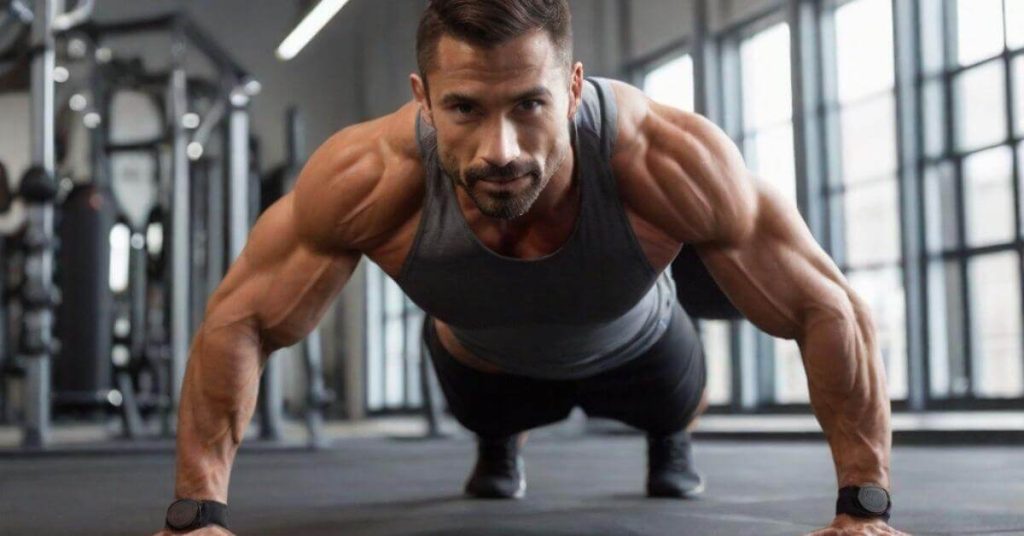
If you’re looking to build muscle, you might be wondering if simply eating more protein is enough to achieve your goals. While protein is certainly an important nutrient for building muscle, it’s not the only factor to consider when it comes to body composition.
When you’re trying to gain muscle, you need to consume more calories than you burn. This is known as a calorie surplus. However, if you consume too many calories, you’ll end up gaining body fat as well as muscle mass. This is why it’s important to pay attention to your overall calorie intake, not just your protein intake.
In addition to consuming enough protein and calories, resistance training is essential for building muscle. Resistance training involves using weights or other forms of resistance to challenge your muscles. This type of exercise helps to stimulate muscle growth and improve muscle strength.
It’s also worth noting that building muscle takes time. You’re not going to see significant changes overnight, so it’s important to be patient and consistent with your diet and exercise routine.
Overall, while protein is an important nutrient for building muscle, it’s not the only factor to consider. To achieve your body composition goals, you need to consume enough calories, engage in resistance training, and be patient and consistent with your efforts.
Can You Gain Muscle Just By Eating Protein?: The Key Takeaways
The short answer here is no. Eating protein with no resistance training will not result in muscle gains. Or at least not the muscle gains you are thinking of. You won’t get ripped by eating chicken and beef all day but not challenging your muscles.
Frequently Asked Questions
Is it possible to build muscle without protein powder?
Yes, it is possible to build muscle without protein powder. While protein powder can be a convenient and efficient way to increase your protein intake, it is not necessary to build muscle. You can get enough protein from whole foods such as meat, fish, eggs, dairy, beans, and nuts.
Do you need high protein to build muscle?
To build muscle, you need to consume enough protein to support muscle growth and repair. However, there is no need to consume excessive amounts of protein. The recommended daily intake of protein for adults is 0.8 grams per kilogram of body weight. Consuming more than this amount may not provide any additional benefits.
How much protein per kg to build muscle?
The amount of protein you need to build muscle depends on your body weight and activity level. As a general guideline, it is recommended to consume 1.6 to 2.2 grams of protein per kilogram of body weight per day if you are engaging in regular strength training.
How much protein do I need?
The amount of protein you need depends on your age, gender, weight, and activity level. As mentioned earlier, the recommended daily intake of protein for adults is 0.8 grams per kilogram of body weight. However, if you are engaging in regular strength training, you may need to consume more protein to support muscle growth and repair.
How much protein to gain muscle For A female?
The amount of protein needed to gain muscle for females is similar to that of males. As a general guideline, it is recommended to consume 1.6 to 2.2 grams of protein per kilogram of body weight per day if you are engaging in regular strength training. However, the exact amount of protein needed may vary depending on your body weight, activity level, and other individual factors.

